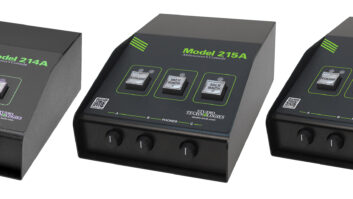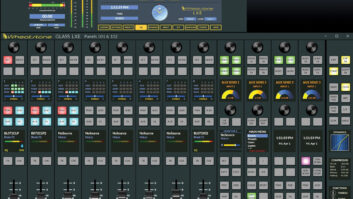One in a series of stories about public comments filed with the FCC about whether U.S. broadcasters should still be required to maintain a local main studio.
Why even require a phone number, when an email address would do?
That’s the kind of discussion that has arisen in debate over the main studio rule. For some, the question of whether to repeal that requirement is not just a yes/no decision.
The Federal Communication Commission’s Notice of Proposed Rulemaking proposes to eliminate the longstanding requirement that stations maintain a properly staffed main studio in or near their communities of license. But the commission also invited alternate ideas and variations.
The National Federation of Independent Business supports small and independent businesses, including broadcasters. It agreed that this change would increase opportunity for small and independent businesses to operate stations efficiently. Eliminating the requirement and the associated staffing and program origination capability requirements opens a range of cost-saving options, it believes.
However, the federation thinks stations should have more flexibility with telephone numbers. The current rules say stations must be required to maintain a local telephone number or toll-free number, and the FCC’s proposal would keep that rule. The association though suggests that each station could provide some sort of means of reasonably communicating, but it could be an email as well as a local or a toll-free number.
Another commenter is REC Networks, a consultancy that does a lot of work with smaller broadcasters including low-power FMs. Founder Michelle Bradley called for “universal” local accountability.
Doing away with a local presence requirement “will result in a major disconnect between the broadcaster and the community that they are licensed to serve,” she wrote. REC said it can understand that maintenance of a brick-and-mortar public location can be a cost burden for stations, including some that REC supports; but the lack of a local person would eliminate a true presence that helps ensure stations connect with listeners. And a toll-free number answered somewhere out of state will not press a station to demonstrate accountability to its community of license, she said.
Bradley suggests that the FCC eliminate the brick-and-mortar requirement but keep a staff requirement. “We feel that every broadcast facility must have a local contact person,” she wrote. This person should be physically within 25 miles of the center of the community of license, REC said. It also asked that the FCC consider applying this local contact requirement to all facilities — including those currently on main studio waivers.
“Licensees with multiple full-service facilities must be required to maintain a management contact person in each of their facility’s local area,” REC said. “This way, if someone wants to contact their local radio station, they are reaching a local person and not the call center in California. … If an owner does not want to be accountable to their community, then we need to stop rubber-stamping renewals and allow the community to truly challenge these out of town owners so they can get their local station back,” REC said.
Comments on the main studio are being accepted in the ECFS database by July 3, with reply comments due by July 17. Refer to MB Docket No. 17-106.
In its NPRM, the commission invited suggestions about other ways to approach the main studio question. “For example, should we only eliminate the rule for a certain subset of stations, such as those that are located in small and mid-sized markets or those that have fewer than a certain number of employees?” it asked. “Commenters advocating this approach should explain with specificity how we should define those stations that will be permitted to eliminate their main studio. We have proposed to eliminate the main studio rule and the associated requirements for all AM, FM and television broadcast stations. Is there any reason to distinguish between our treatment of AM, FM, and television broadcast stations in this context? We also invite comment on alternative ways we can reduce main studio-related burdens on broadcast stations.”












